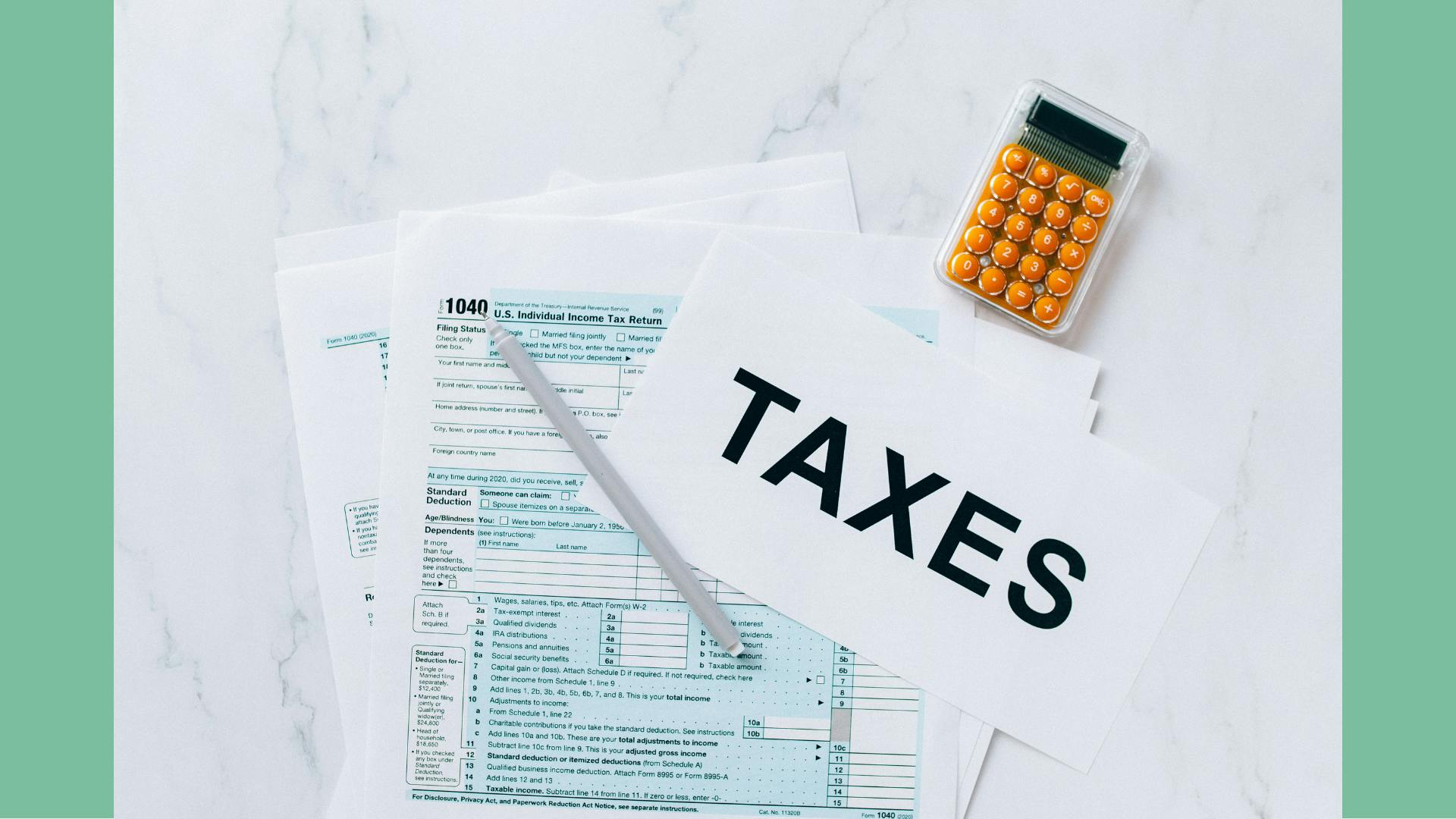Property Management
Spring into Tax Season: The Ultimate 2023 Tax Prep Guide for Landlords
Last Updated Feb 21, 2023


As we countdown the days until warmer weather arrives there is a less exciting prospect on the horizon that comes with spring: the federal tax deadline.
There’s a lot to get your head around as a landlord when it comes to tax season, but those who are prepared and stay on top of their game will find it a lot easier — and save money in the process.
Disclaimer: We don’t enjoy using the word ‘landlord’. We prefer to refer to members in our network as homeowners, not landlords, since we’re on a mission to upend and redefine the traditional landlord-tenant relationship. That said, there’s a big difference between residential ‘homeowners’ and ‘landlords’ when it comes to tax matters, so in some instances we have had to stick to the old term for owners of rental homes. This article helps to highlight things that rental home owners should prepare for, but should not be considered financial advice. Please speak to an accountant or financial advisor to discuss your individual situation and eligibility before filing any tax documentation.
New and noteworthy tax changes for landlords
Each year brings new bills and regulations, which means changes to taxation rules. As the owner of a long-term rental property, here are some changes that are worth getting across to prepare for the 2023 tax season:
- Federal income tax brackets are changing for 2023
- New initiatives bring tax incentives for energy-efficient homes
- The IRS has tax relief for disaster situations
1. Federal income tax brackets are changing for 2023
In 2023, federal income tax brackets are changing to account for high rates of inflation. While we can’t provide personalized advice for your exact tax situation, if you want to know how the changes will impact your return, we have prepared an article on the new rates here.
2. New initiatives bring tax incentives for energy-efficient homes
With new green initiatives and Residential Clean Energy tax credits announced last year, many homeowners are wondering what extra deductions they could claim for energy-efficient improvements to a rental property. The bad news is that these credits don’t apply to rental homes.
That said, if you are making improvements to the home or upgrading the appliances, you can still qualify for depreciation on these upgrades and/or receive local state incentives — but not the federal tax credits. If you use the home for part of the year, you can claim partial credit too (e.g. if you live in the home for half of the year, you can claim 50% of the tax credit).
3. The IRS has tax relief for disaster situations
2022 was a year of wild weather and the IRS has tax relief provisions in place for homeowners with property in areas that are hit by disaster, such as a hurricane, tornado, flooding, earthquake, landslide, or wildfire.
If you have faced a sudden damage (not deterioration over time, even if due to weather) to your rental home, the loss should be tax deductible. How much and what you can claim depends on how much of the home was destroyed during the incident and how much was covered by insurance claims. You can only claim the loss (or partial loss) of the property, not the cost to repair, replace, or clean up any damage. The cost of restoring the home is considered capital improvement and falls under depreciation. You can learn more about tax relief for disasters on the IRS website or this handy legal guide from NOLO.
Preparing for your tax return when you own a rental property
Tax season has officially started, with the 2023 filing deadline set at Tuesday, April 18. If you request an extension, you will have until Monday October 16, 2023 to file (but your request must be submitted by the April deadline).
It’s always a good idea to leave tax filing to an accountant, who can help maximize your tax return and reduce your liability each year. But whether you go it alone or enlist professional help, you’ll still need to be prepared and keep accurate records of everything relating to your rental property.
Here’s 5 steps to help you prepare for filing before the deadline — and get a head start on your bookkeeping for next year:
- Determine if you qualify for ‘active participation’ or ‘passive activity’
- Get your documents in order
- Understand and report your income
- Understand and report your deductions
- Understand and report depreciation
Tax prep step #1: Determine if you qualify for ‘active participation’ or ‘passive activity’
You may have heard that there are tax benefits to taking a DIY approach to rental property. This is true, if you are self-managing the home, you may qualify as having ‘materially participated’ as a real estate professional. This allows your rental property involvement to receive non-passive tax treatment. Non-passive income means you can use any losses to offset other types of income, and you won't be subject to the 3.8% tax that applies to net investment income.
But to benefit from this approach, you need to show that you have spent 500 hours or more managing your property. This route isn’t for homeowners looking for passive income to build their wealth. Even if you hire an individual to help, you will need to consider extra legal and tax implications such as payroll.
If you’re not considered a real estate professional, owning a rental home is considered a
‘passive activity’ by the IRS. You won’t miss out on tax deductions, but any losses will carry forward until you generate passive income or sell the home.
There is a middle ground between passive income and becoming a real estate professional is known as “active participation”. The IRS takes into account major decisions about your investment, such as approving new residents and even the work that goes into appointing a property management company. If you actively participate in these decisions, you could deduct some (up to $25,000) of your passive losses, even if a company like Belong handles all the hard work. There are income thresholds and caps on deductions here so you will need to speak to an accountant to determine if you qualify for this.
Tax prep step #2: Get your documents in order
Regardless of your level of participation, the single-most important part of tax preparation is documentation. You’ll need records of everything relevant to your rental home.
This includes:
- Records of any income earned from the property including rent, any late fees paid and interest earned
- A mortgage statement showing how much interest you paid
- Receipts for any expenses that the tenant has not covered, such as repairs and maintenance to the home
- Records and expenses for professional services hired related to advising on your property, including accounting, and legal fees
- Records and expenses related to management of your property, either itemized as a self-managing landlord or the expenses of service providers such as Belong or a property management company
- The cost of any capital improvements made to the home
- Records of property taxes paid on the home
- Records and cost of insurance premiums held for the home
If your home is loved by Belong, you’ll always have full visibility over your income and expenses through the Belong app. Each year we'll send you a statement for you or your accountant to work through, plus your concierge is on hand to assist if you need to clarify any information around earnings or charges. And did we mention that Belong fees are tax deductible?
Tax prep step #3: Understand and report your income
If you're a sole proprietor or a single-member LLC, you'll report your rental income and expenses on Schedule E of your personal tax return (Form 1040). If you're an LLC or a partnership, you'll file a separate tax return for your business, and your rental income and expenses will be reported on that return.
Most individual taxpayers report on a cash-basis, which means you will need to report rental income to the IRS for the year when you receive it, not when it was earned. So for example, when it hits your bank account.
If your home is looked after by Belong, you will receive guaranteed rental income and may receive rent in advance, either monthly or an entire year upfront, regardless of when your residents have paid. In these instances, you will need to declare the income when you received it, even though the rent is covering an advanced period that won’t have been completed at the time of filing.
Other types of income you may need to report:
If your tenant pays you for any of your expenses, the payments are counted toward rental income. If they are eligible expenses, you can include the amount you paid as deductions too.
If your tenant pays you to cancel a lease, the amount you receive is considered rent. Include the payment in your rental income in the year you receive it regardless of your method of accounting.
If your tenant pays with something other than money, you need to record the fair market value as income. This would only apply to homeowners who self-manage a property and have a direct agreement with their resident, such as providing two weeks rent in exchange for redoing the gardens or replacing a fence.
If you receive a security deposit payment, rather than returning it at the end of a lease. Sometimes security deposits are used in lieu of a final rent payment or to cover breaches and damage to the home. Include this as income when it’s received, but don’t include a security deposit if you’re holding it with the intention of returning it to a tenant at the end of their lease.
Tax prep step #4: Understand and report your deductions
Like reporting income, you generally deduct expenses in the year that you pay for them. If you pay for property management services or a modern alternative such as Belong, you can claim these fees as a simple deduction. If you self-manage the home, you will need to itemize all deductions such as advertising, travel to the property for showings and inspections, and administrative costs including home office expenses.
An accountant can help with your exact deductions and amount or exclusions, but common deductions include:
- Interest paid to the bank toward a mortgage on your rental property
- Any taxes paid on the rental property such as property tax
- The cost of insurance policies, such as property insurance and liability insurance
- The cost of essential repairs and maintenance to the home (like fixing a broken pipe, but not remodeling the bathroom)
- Depreciation on the value of the home over time, calculated on the purchase price
- Depreciation on the value of any home improvements and/or appliances
- Accountant fees
- Legal fees
- Professional services for managing the home, such as Belong or a property management company
- Travel and mileage expenses relating to renting out the home, such as property inspections, showing potential residents or maintenance requirements
- Any home office expenses relevant to managing the rental property
- Any casualty losses incurred, such as damage or theft not covered by insurance
Tax prep step #5: Understand and report depreciation
While relevant to your rental home, there are some expenses you can’t claim as a deductible, such as mortgage or principal payments, fixtures and furnishings, or home improvements that aren’t essential repairs — such as building a deck or remodeling the kitchen.
What you can do is deduct the decline in value on the part of the property used for rental purposes. This can offset your income and lower tax liability on capital gains from the investment.
Known as depreciation, it’s one of the most appealing and impactful tax strategies for rental property owners. Depreciation allows you to deduct costs associated with buying and improving your rental home. Rather than happening in one big deduction, depreciation distributes the cost over the functional life of the property (calculated at 27.5 years).
An accountant can help you work out the nitty-gritty details of what you can and can’t claim, but to summarize, there are a few important factors that the IRS considers with depreciation:
- Unlike most items that lose value as they age (like a car), homes usually appreciate over time because of what land is worth. For this reason, depreciation only applies to the usable home structure that is in service as a rental, so you will need to calculate the cost/value of the building excluding the land value. This value of the house, regardless of condition, is divided by 27.5 to calculate the annual depreciation of your rental property.
- A rental home can’t be depreciated if you stop using it as a rental in the same year. So if you sell it, the structure is destroyed/abandoned, or you take it out of service for personal use, you will not be eligible to claim depreciation in that year.
- You can continue to claim a depreciation deduction for property that's temporarily not in use, for example during vacancies between residents or if you are making repairs/improvements to a property in preparation for the next resident.
- Capital improvements made to the house (e.g. a new deck, renovated kitchen, installing an HVAC) need to be added to the value of the property and can also be depreciated as they make up the value of your home. Add the amount an improvement costs you, including any amount borrowed, labor and material costs, as well as consulting expenses such as architect fees or surveying.
- Depreciation reduces your basis for figuring gain or loss on a later sale or exchange.
As mentioned earlier, new energy efficiency tax credits don’t apply to rental homes, but the cost to increase the value of a rental home can be depreciated.
Belong simplifies tax time for landlords
Belong makes managing your rental property taxes easier, because you always know where you stand. Your rental income is consistent (and guaranteed), expenses are transparent with no hidden costs (and deductible too!), and every year you’ll get a statement for you or your accountant to use at tax time.
About The Author
Melanie Kershaw
Mel Kershaw is a Content Lead at Belong. With an extensive background working with technology companies including Eventbrite and Yelp, she’s always looking for ways to create educational and informative articles that simplifies tech and solves problems for her audience.




